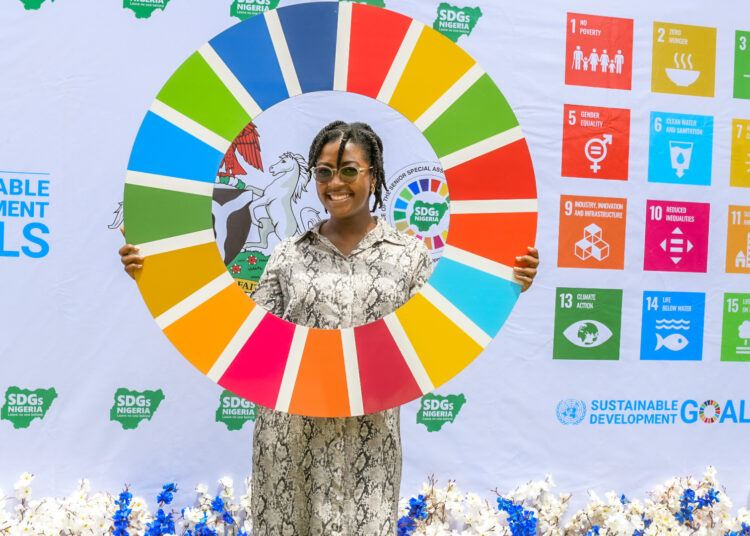Nigeria presented its Third Voluntary National Review (VNR) on the implementation of the Sustainable Development Goals (SDGs) at the 2025 United Nations High-Level Political Forum (HLPF) in New York, acknowledging a mixed performance in pursuing the 2030 Agenda.
Presenting the report on behalf of the Nigerian government, Princess Adejoke Orelope-Adefulire, head of delegation and senior special assistant to the president on SDGs, disclosed that 34.6 percent of the country’s SDG performance indicators showed regression, highlighting persistent developmental challenges amid global and domestic headwinds.
According to a statement by Desmond Utomwen, the special assistant on media, publicity, and strategic communication to the SSAP-SDG.
The 2025 VNR—Nigeria’s third since it began voluntary reporting in 2017—offered a candid account of national progress. It showed that while 34.6 percent of the 52 reviewed SDG indicators improved, another 30.8 percent stagnated.
The remaining 34.6 percent regressed, underscoring structural barriers that continue to impede inclusive and equitable growth.
Orelope-Adefulire reaffirmed Nigeria’s commitment to the SDGs, noting that the government remains undeterred in its pursuit of sustainable development, even as it grapples with climate shocks, fiscal stress, and external pressures.
Despite the setbacks, the review showcases Nigeria’s strengthened institutional frameworks for SDG implementation, citing the alignment of the National Statistical System with SDG reporting, the launch of the Inclusive Data Charter Action Plan, implementation of the Integrated National Financing Framework (INFF), and country-led evaluations of priority goals.
The review is anchored in Nigeria’s core development blueprints, including the Economic Recovery and Growth Plan (2017–2020), the Economic Sustainability Plan (2020), and the ongoing National Development Plan (2021–2025). It reflects a whole-of-government and whole-of-society approach.
This included broad consultations across the six geopolitical zones and targeted engagements with youth, children, and persons with disabilities.
The 2025 VNR focuses on five priority SDGs: SDG 3 – Good Health and Well-being, SDG 5 – Gender Equality, SDG 8 – Decent Work and Economic Growth, SDG 14 – Life Below Water and SDG 17 – Partnerships for the Goals.
The report notes that fiscal constraints remain a critical bottleneck, with government revenue amounting to just 9.6 percent of GDP in 2023.
While modest gains in the tax-to-GDP ratio and a steady stream of diaspora remittances have occurred, financing remains insufficient to match the scale of SDG ambitions.
In addition, the report outlines how overlapping global crises—including the COVID-19 pandemic, climate change, and geopolitical instability—have undermined development gains, caused widespread economic contractions, disrupted supply chains, and deepened inequality across vulnerable populations.
The government plans to prioritise reforms that enhance national data quality and disaggregation, intensify the implementation of the Inclusive Data Charter Action Plan, and develop a new Medium-Term National Development Plan (2026–2030) focusing on inclusive, climate-resilient growth.
Orelope-Adefulire concluded Nigeria’s presentation by reaffirming the country’s readiness to collaborate with global partners, scale innovation, and deepen multisectoral coordination in the race toward achieving the SDGs by 2030.











